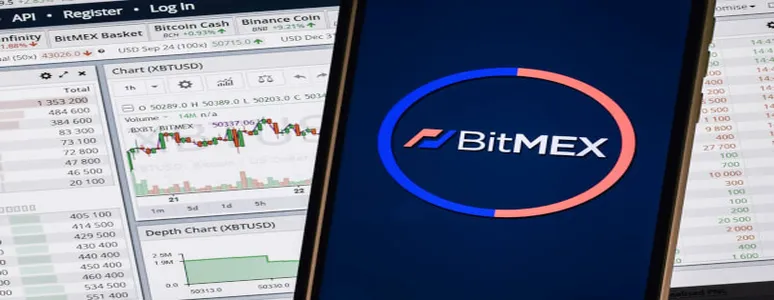South Korea, officially the Republic of Korea, stands out as a prominent country in East Asia with a population nearing 52 million and the South Korean won as its currency. The nation has been at the forefront of embracing blockchain technology and cryptocurrencies, leading to heightened public interest and oversight.
In order to ensure the smooth and secure functioning of the cryptocurrency market, South Korea has enforced rigorous regulations overseen by the Financial Services Commission (FSC). These rules encompass stringent Anti-Money Laundering measures and securities regulations specifically aimed at cryptocurrencies like Bitcoin (BTC).
Renowned for its early embrace of innovative technologies, South Korea has been familiar with micropayments and digital tokens since as far back as 1996. This familiarity has paved the way for cryptocurrencies to become a popular asset and mode of payment among the populace. Numerous young individuals have found success in trading cryptocurrencies for profit.
South Korean Crypto Regulations 2024
25-06-2024: South Korea Introduces New Virtual Asset Regulation
Enacted on July 18, 2023, and set to take effect from July 19, 2024, the Virtual Asset User Protection Act has been established to safeguard crypto investors and regulate the country's virtual asset market. This act addresses unfair trading practices and introduces crucial protections, marking a significant milestone in industry regulation.
05-04-2024: South Korea Enforces Stricter Regulations for Crypto Exchange Listings
South Korean financial authorities have released fresh guidelines that impose stricter regulations on token listings on centralized crypto exchanges, with implementation expected by the end of April or early May.
20-03-2024: Montenegrin Court Denies Do Kwon’s Appeal Against Extradition to South Korea
In a setback for Terraform Labs co-founder Do Kwon, Montenegro's court dismissed his appeal, allowing for his extradition to South Korea. The Appellate Court upheld a prior decision from the country's high court on March 20. Kwon faces potential criminal charges in South Korea.
05-02-2024: South Korea’s Regulator Plans Discussion on Spot Bitcoin ETF with SEC Chief Gary Gensler
Lee Bok-hyun, the head of South Korea’s Financial Supervisory Service (FSS), expressed intentions to engage in discussions with the U.S. Securities and Exchange Commission (SEC). The focus of these talks reportedly includes spot bitcoin exchange-traded funds (ETFs), as reported by Hankyung.
03-01-2024: Proposal in South Korea to Ban Credit Card Payments for Cryptocurrencies
South Korea's top financial regulator has put forth a proposal to amend the country's credit finance laws, aiming to prohibit local residents from purchasing cryptocurrencies with credit cards. The Financial Services Commission (FSC) cited concerns about illicit outflows and money laundering associated with South Korean individuals buying cryptocurrency from foreign exchanges.
Government Stance on Cryptocurrency
South Korea permits cryptocurrency ownership and trading, having passed an amendment to the Act on the reporting and use of specific Financial Transactional Information back in 2021. This amendment extended Anti-Money Laundering/Counter-Terrorist Financing (AML/CTF) regulations to virtual service providers.
The legislation now covers various virtual asset service provider (VASP) activities, encompassing cryptocurrency buying and selling, crypto-to-crypto exchanges, crypto transfers, and virtual asset storage/management. Consequently, all Crypto Service Providers must upgrade their Anti-Money Laundering/Know Your Customer (AML/KYC) systems and register with Korean financial regulators prior to commencing any crypto-related operations.
Crypto Taxation
The virtual assets tax in South Korea has been postponed with the backing of young voters, and plans to tax virtual assets are on hold until 2023 under South Korean legislators. From January 1, 2022, a 20% tax on crypto gains over a year, exceeding KRW 2.5 million (US$2,122), was proposed.
The proposed crypto tax measures in South Korea have faced opposition not only from young investors and industries but also from lawmakers and financial authorities, causing delays in implementation.
Stock investors are required to pay taxes on gains surpassing KRW 50 million (US$42,450), while crypto investors must pay taxes once their capital gain reaches $2,122. Additionally, stock losses can be carried over for up to five years, but such provision is not extended to crypto losses.
Crypto Mining
South Korea has emerged as a significant hub for cryptocurrency miners, offering substantial tax benefits under the 2022 digital currency taxation regime. Crypto miners are permitted to deduct electricity costs as business expenses during tax filings related to cryptocurrency activities.
Under the new law implemented by South Korea’s Ministry of Economy and Finance, crypto miners can report operating expenses, including electricity bills, as tax-deductible, provided they furnish evidence of electricity utilization.
There has been a noticeable surge in the import of mining hardware through South Korea’s prominent air terminal, Incheon. Mining hardware valued at less than $150 for crypto mining purposes is considered acceptable for personal use in South Korea.
Historical Events and Announcements
2023
25-05-2023: South Korea Enacts Law Requiring Officials to Disclose Bitcoin Holdings
The enactment of the Kim Nam-guk Prevention Law was prompted by a scandal involving National Assembly members engaging in crypto transactions. South Korea passed new laws mandating officials to declare their holdings of cryptocurrencies like Bitcoin, with unanimous approval from the National Assembly during a plenary session on May 25.
17-05-2023: South Korean Prime Minister Urges High-Ranking Officials to Disclose Crypto Holdings
At a press conference on May 17, the South Korean Prime Minister, Han Deok-soo, urged high-ranking officials to disclose and register their cryptocurrency assets. This move stresses the inclusion of crypto assets in the official property registration of officials.
2022
01-04-2022: South Korean Banks looking for permission to use cryptocurrency
The Korean Federation of Banks (KFB) is contemplating requesting the future South Korean presidential government to authorize local banks to engage with cryptocurrency services. This would entail enabling banks to explore virtual asset entities such as crypto trading platforms, e-wallets, and custody services under the supervision of KFB.
10-03-2022: Upcoming President vows to reverse Crypto crackdown and deregulate sector
The next president of South Korea, Yoon Suk-yeol, formerly the prosecutor general, has pledged to reverse the current crypto crackdown and pursue deregulation in the sector. This commitment follows a narrow victory secured in the country's presidential election.
26-03-2022: South Korea restricts crypto transfers higher than $821 to user-verified wallets
Korean exchanges have implemented measures to identify and restrict crypto transfers exceeding $821 to wallets verified by users. Selected exchanges have adopted Anti-Money Laundering systems to enhance transaction security.
28-02-2022: LABEL Foundation proves a light at the end of the tunnel for crypto
LABEL, an innovative NFT infrastructure built on the Ethereum Network powered by the LBL utility and governance token, has faced challenges in securing listings on South Korean exchanges due to strict regulations and heightened scrutiny from financial watchdogs.
08-01-2022: South Korean crypto exchanges follow Coinone in verifying private wallets
Major crypto exchanges in South Korea, including Upbit, Bithumb, and Korbit, have implemented a policy requiring users to verify third-party wallet addresses. This measure aligns with FATF travel rule guidelines and aims to enhance compliance with regulatory norms.
2021
10-12-2021: South Korean regulator proposes new strict rules for token issuers
The Financial Services Commission (FSC) of South Korea has proposed stringent regulations targeting token issuers. The new rules aim to recover illicitly gained funds, impose criminal penalties, and safeguard investors from future malpractice. South Korea's FSC has delineated a fresh perspective on cryptocurrencies through these proposals.
25-11-2021: Korbit is the first crypto exchange to add support for Shiba Inu in Korea
Korbit, a prominent South Korean crypto exchange, has become the first platform in the country to offer support for Shiba Inu trading against the Korean Won. This move is significant given South Korea's reputation for stringent crypto regulations.
05-10-2021: Enforcement Decree of the Act on the reporting and use of specific financial transaction information
This enforcement decree aims to define and delegate responsibilities as mandated by the Act on reporting and using specified Financial Transaction Information. Its purpose is to ensure compliance and address pertinent matters necessary for effective enforcement of financial transaction regulations in South Korea.
19-09-2021: South Korean Crypto exchange backed by DOGco faces potential closure
A South Korean crypto exchange affiliated with DOGco is on the brink of closure as the deadline approaches for platforms to submit requests for an official operating license in South Korea. The uncertainty surrounding its regulatory standing raises concerns within the crypto industry.
2020
25-07-2020 South Korean banks to decentralize data security
South Korean banks are stepping up their cybersecurity measures to counter emerging threats related to fintech and cryptocurrency interactions. Institutions are adopting innovative solutions, including blockchain technologies, to bolster data security in response to evolving challenges stemming from the crypto domain.
01-04-2020: Binance enters the South Korean market
The renowned cryptocurrency exchange, Binance, commenced operations in the South Korean market, marking a significant milestone in the country's crypto landscape.
07-03-2020: South Korean Parliament unanimously passes amendment for crypto regulation
The South Korean Parliament unanimously endorsed an amendment to enhance crypto regulations under the Act on Reporting and Use of Specific Financial Information. This amendment mandates real-name verification for crypto service providers in line with global standards outlined by the Financial Action Task Force (FATF).
04-03-2020: South Korean Government embraces crypto legal system
The passage of amendments heralds the formal integration of cryptocurrency trading and possession into the legal framework of the South Korean government. This milestone signifies a significant shift in the regulatory landscape for cryptocurrencies within the country.
2019
19-12-2019: KT announces local blockchain-based currency for Busan
South Korea's major telecom company, KT, unveiled plans for a local blockchain-based currency to be launched in Busan, the country's largest city. This initiative, set to go live on December 30, 2019, aims at fostering economic growth in Busan leveraging KT's expertise in operating a regional currency and ensuring blockchain security.
02-08-2019: Busan declared as 'Regulation-free' zone for blockchain development
Busan city has been designated a 'Regulation-free' zone for advancing blockchain innovation, with eleven regulations lifted to stimulate development. BNK Busan bank will oversee the project, anticipating investments worth around $25 million by 2021. However, the regulatory framework surrounding Initial Coin Offerings (ICOs) remains intact, with ICOs subject to ongoing regulatory scrutiny.
12-04-2019: South Korean lawmakers express intent to review regulatory policies for crypto firms
During the Deconomy Conference, South Korean lawmakers signaled their willingness to reassess the regulatory policies affecting cryptocurrency firms in the country. This initiative reflects a proactive approach to address industry challenges and foster a conducive environment for crypto development.
30-01-2019: FSC maintains ban on ICO fund-raising
The Financial Services Commission (FSC) reiterated its prohibition on the fundraising method facilitated through Initial Coin Offerings (ICOs), continuing a stance initiated in 2017. A survey conducted across 22 companies outlined persistent concerns regarding the risks associated with ICO investments and the lack of sufficient data for informed decision-making.
2018
22-10-2018: FSC issues warning on cryptocurrency investment risks
The Financial Services Commission (FSC) issued a cautionary advisory highlighting the risks involved in cryptocurrency investments, underlining the need for informed decision-making and risk awareness among investors.
13-07-2018: South Korean Ministry announces reduced tax obligations for blockchain firms
The Ministry of Strategy and Finance in South Korea unveiled a government plan aimed at easing tax burdens for blockchain companies, signaling support for fostering blockchain development within the country.
15-06-2018: Bank of Korea releases research report on Blockchain technology and cryptocurrencies
The Bank of Korea published a research report titled 'Payment and Settlement Research Report 2017,' focusing on blockchain technology and cryptocurrencies. These research insights underscore the significance of blockchain advancement in the financial landscape.
08-03-2018: FSC clarifies stance on ICOs
The Korean Financial Service Commission (FSC) clarified its position, stating that while there were no immediate plans to lift the ban on Initial Coin Offerings (ICOs), the matter would be subject to future deliberations and considerations.
2017
06-12-2017: FSC bans trading of Bitcoin Futures in South Korea
The Financial Services Commission (FSC) enforced a ban on trading Bitcoin Futures in South Korea, prompting the cancellation of scheduled seminars for Bitcoin Futures investors. Although the government maintained its stance against ICOs, it underscored a distinction between cryptocurrency exchanges and ICO activities.
29-09-2017: South Korean regulators announce ban on fundraising through ICOs
In response to the global rise in Initial Coin Offerings (ICOs), South Korean financial regulators resolved to prohibit fundraising via virtual currencies known as ICOs. The decision reflected concerns regarding escalating ICO activities domestically and internationally.
02-08-2017: Lawmaker calls for regulations on digital currencies
Amidst the burgeoning interest in digital currencies, a South Korean lawmaker advocated for regulatory measures to govern the digital currency landscape. The proposal aimed to amend existing legislation to accommodate the evolving digital currency domain.
18-11-2016: South Korean Financial Regulators launch Digital Task Force
In a bid to introduce comprehensive regulations for exchanges, South Korean financial regulators initiated a Digital Task Force to oversee the development of new regulatory frameworks for the cryptocurrency sector.
10-12-2013: Government agencies warn against cryptocurrency investments
The Ministry of Strategy and Finance, Bank of Korea, Financial Service Commission, and Financial Services Commission collectively cautioned against considering cryptocurrencies as legal tender, emphasizing regulatory non-compliance and warnings on the intrinsic value of Bitcoin.
Conclusion
South Korea's journey as a top virtual currency adopter has been accompanied by significant developments in cryptocurrency regulation. Prior to engaging in crypto activities, exchanges in South Korea must secure licenses from the Financial Intelligence Unit (FIU) and establish partnerships with banks to facilitate their operations.
The prominence of major crypto exchanges such as UPbit, Bithumb, Coinone, and Korbit, with real-name bank accounts issued by commercial banks, underscores the pivotal role these exchanges play in accounting for 97% of the trading volumes in South Korea. The ongoing evolution of regulatory frameworks in South Korea provides a compelling narrative of the country's stance on cryptocurrencies and the dynamic landscape of digital assets.










Comments